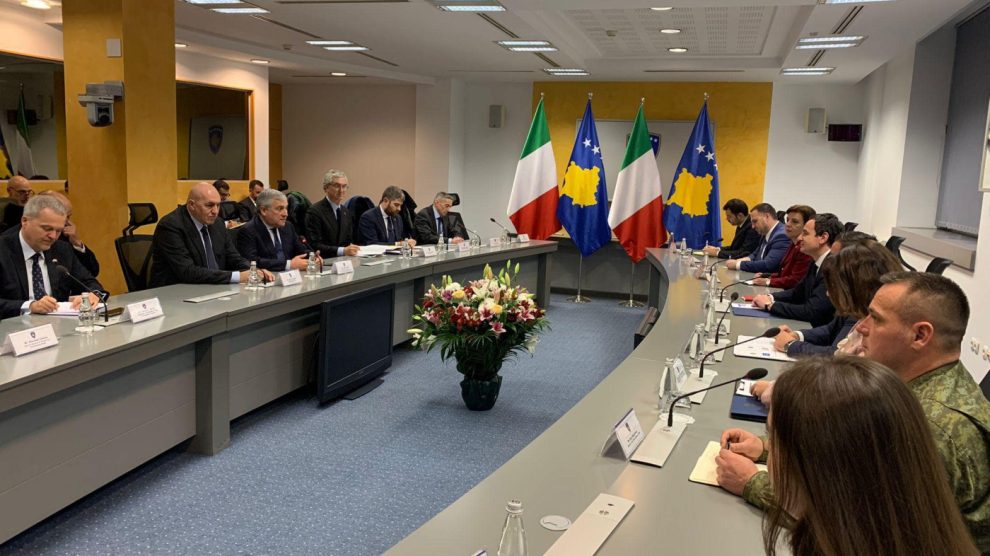We have a deal. Late on Wednesday, Kosovo and Serbia countries reached an agreement to de-escalate a dispute over car number plates – the latest flashpoint in longstanding tensions between ethnic-Serb citizens and Pristina – which could have resulted in a violent outbreak.
- The European Union’s foreign policy chief announced the news on Twitter, noting the two sides agreed to concentrate on normalising relations.
It was a joint effort. While the EU brokered the deal, Kosovo’s President Vjosa Osmani noted it would have not been possible without the involvement of the United States, which pushed for a deadline extension on Monday. And Italy, which is heavily engaged in local peacekeeping operations, also played an influential part.
- As the situation escalated on Monday, Foreign Minister Antonio Tajani and Defence Minister Guido Crosetto travelled to Belgrade and Pristina to pursue what the latter later called “an important political initiative.”
- The first steps towards rapprochement happened the day after their visit, said FM Tajani on Thursday. “I am still in contact with [Serbian] President Vucic and [Kosovar] Prime Minister Kurti,” he added, noting that “the future of the Balkans is in Europe – and Italy is ready to play a leading role in the region.”
Personal stakes. The situation remains complex because of the tensions’ root causes, noted Giorgio Fruscione, head of Balkan analysis and research for the Italian institute for International Studies (ISPI). As he told Decode39, the leaders “are interested in mere domestic political reasons, rather than in regional political issues” – i.e. propping themselves up as defenders of their respective national interest, while cashing in consensus and international credibility.
The Russian connection. Contrary to popular thinking, and unlike its years-long entente with Serbia, Moscow isn’t directly interfering with this matter, added the expert. Instead, Russia “is trying to benefit indirectly from the dynamics” by occupying the vacuums created by regional instability.
- In general, the more the processes of rapprochement of those countries with the Western world (EU or NATO) slow down, the more space opens up for the Russians to exploit the situation in various ways. Thus, what is happening adds internal issues to external dynamics.
Italy’s role in the Balkans, noted Mr Fruscione, is dual. The first aspect involves the Italian contingent in the KFOR mission, “both the most substantial and the one most appreciated by the local population.” The second entails international diplomacy, “where Italy has a role as the primary sponsor of Balkan integration into the EU; a role that has been renewed with the ministers’ recent visit.”
- Italian diplomacy announced an international conference – “which Rome will organise to give itself greater centrality in its neighbourhood,” said the expert.
- The country now leads the bloc of countries that has emerged from hesitancy over the integration of the Balkans into the EU.
- That’s a crucial process that must be reinvigorated, because Kosovo’s faith in the EU is waning – in part because Mr Borrell, and his Special Envoy Miroslav Lajčák, hail from countries that do not recognise the country’s independence (Spain and Slovakia respectively).
- “Pristina still perceives Washington as a crucial support, but the US is committed to other dossiers and intends to encourage greater activism from Brussels,” concluded Mr Fruscione.




